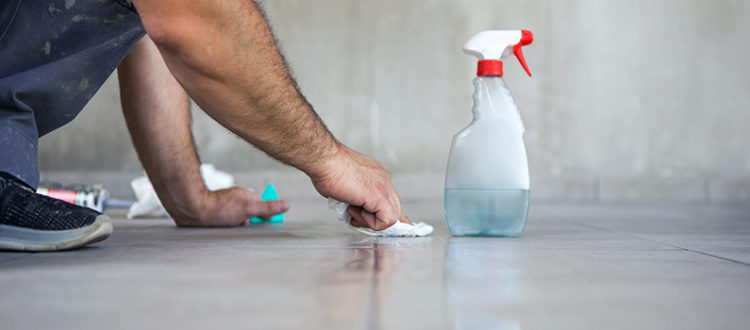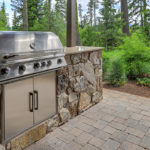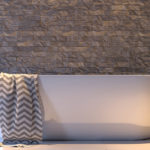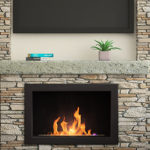Why Does Limestone Need to Be Sealed?
Why Your Limestone Should Be Sealed
In the realm of natural stone, there are conflicting opinions on whether or not limestone (among other natural stones) should be sealed. On one hand, experts tend to recommend sealing all stone. On the other, sealants may be notorious for altering the stone’s natural appearance.
For the most part, all stone surfaces should be sealed. Especially with porous stones like limestone, sealing is necessary to prevent other particles and liquids from seeping below the surface. Stone floors and counters that go unsealed may harbor ground-in dirt, dust, and dried liquids. This can be especially problematic when you spill things in your kitchen and bathroom, because colored liquids can easily stain a stone with lighter coloration. Similarly, exterior limestone used around pool decks or patios can be subject to various elements, chemicals, and plenty of traffic.
Extending the Lifespan of Your Limestone Home Feature
Limestone needs to be sealed in order to last as long as possible. It maintains the natural appearance of your stone, and can prevent it from getting stained. Even dirt and water can cause a form of “crystallization” within the pores of your limestone, creating detrimental and unsightly stains.
Types of Limestone Sealants and Coatings
There are a few different forms and subtypes for limestone sealants, and which you choose will most likely be dependent on what type of limestone home feature you’re protecting. Certain options are better for bathroom limestone, while others are meant specifically for limestone flooring.
Permanent Limestone Coatings
Permanent coatings are those that are more difficult to be removed, and are meant to stay on your stone for its lifetime. They’re usually made of polymers suspended in a solvent, with common ones being polyurethane and epoxy. These are often not recommended for natural stone.
Strippable Limestone Coatings
Strippable coatings can be easily removed from the surface of stone. They’re made of materials like acrylics, styrene, polyethylene, and more – typically with formulas that are water-based. This form of coating is meant more for tile floors and not necessarily stone, so make sure to pick one specific to stone if you choose a strippable option.
Penetrating Limestone Sealants
Penetrating sealants are designed to go deep below the surface and deposit particles into the stone’s pores. They also coat the minerals found below the surface of the stone. By using a penetrating sealant, your stone is resistant to water, oil, and dirt. These sealants may be solvents or water-based, and tend to contain silicone, siloxane, methyl silicate, or other silicon derivatives. Penetrating sealants can be divided into subtypes, and may be classified as either oil-repelling or water-repelling. Water repelling ones are termed hydrophobic, and can fight off your kitchen’s common spill culprits like juice, coffee, tea, soda, and wine. Oil repelling options are called oleophobic, and they repel both water and oil-based liquids. This includes the above liquids as well as cooking oils, grease, and oils produced by the body. Oil-repellent options will always be hydrophobic, but water-repelling options will not always be oleophobic, so most homeowners go for those that are oil-repellent.
Coatings Versus Penetrating Limestone Sealants
Many homeowners struggle with choosing between coatings and sealants. Generally speaking, coatings can be easily applied by non-experienced homeowners, and are more economical. They provide anti-slip properties, a “sacrificial” layer to be worn off by traffic, and add a luster to stone. Unfortunately, coatings need to be buffed or reapplied often, and can give stone an unnatural, almost plastic-like appearance. Penetrating sealants, also known as impregnating sealants, typically require professional application. They’re less environmentally friendly and more expensive, but also do not require frequent reapplication. Penetrating sealants last years, and won’t change the color or appearance of your stone the way coatings will.
Choose Limestone From Impression
Impression knows that caring for your limestone is of the utmost importance, which is why our team of experts strives to provide helpful information each and every day. Talk to your artisan team about how to care for your unique home feature composed of limestone for more specific and specialized advice. And if you don’t yet have limestone, contact us today to get started on a new custom home feature made of the highest-quality natural stone available!
















